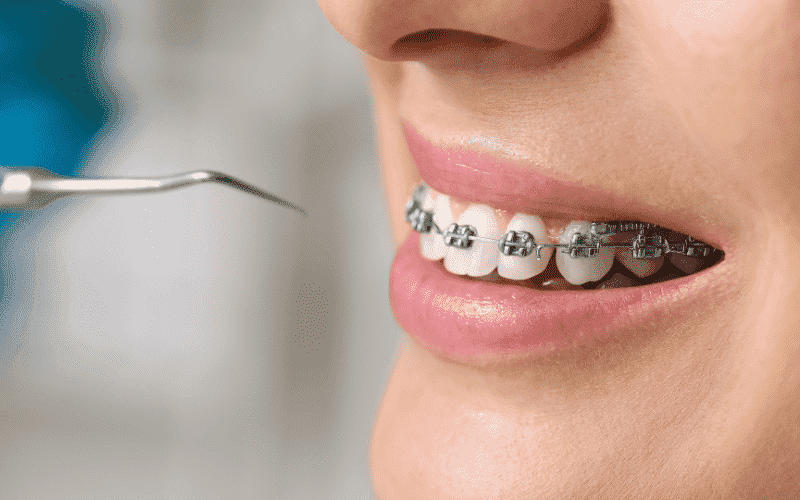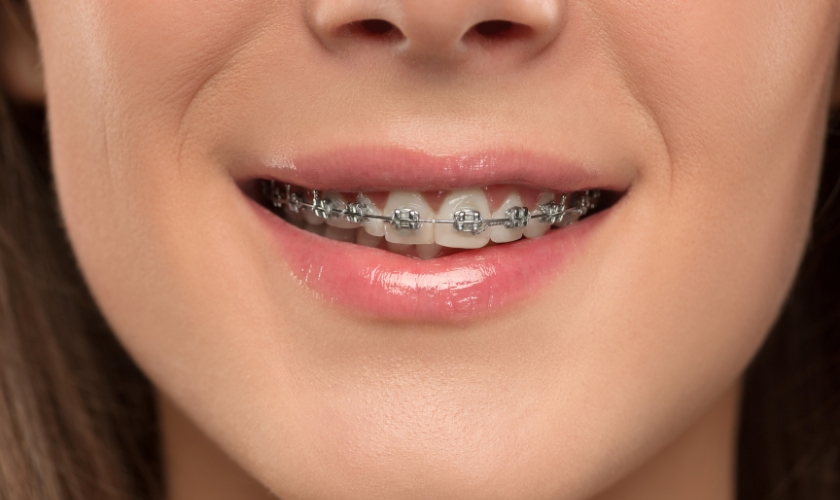509-315-9840
Nervous About Braces? Tips For Managing Orthodontic Anxiety

The thought of getting braces can be daunting, especially for adults. Images of metal brackets tightened wires, and potential discomfort can spark anxiety. It’s natural to have concerns about how braces will impact your daily life and appearance. However, it’s important to remember that braces are not just about cosmetic improvement; they are crucial to enhancing dental health and overall well-being. But a straighter, healthier smile is a worthy goal, and with the right approach, you can manage your worries and embrace your orthodontic journey.
Today’s blog will provide you with practical tips to help you conquer your anxiety about braces and confidently work with an orthodontist. Understanding the process and taking proactive steps will make your orthodontic experience much more comfortable. Have a look at these helpful options to overcome your anxiety about braces and confidently work with an orthodontist in Spokane Valley:
Understanding Your Anxiety
The first step is acknowledging your anxieties. Are you worried about the appearance of braces? Do you fear pain or discomfort during adjustments? Identifying the root cause of your anxiety allows you to address it directly.
- Common Concerns: Many people worry about the appearance of braces, discomfort during treatment, and how braces will impact their daily lives.
- Emotional Impact: Anxiety about braces can affect self-esteem and cause hesitation about seeking treatment.
- Long-Term Benefits: Keep in mind that braces are not just about aesthetics; they also contribute to improved dental health and overall well-being.
Take Control: Strategies To Manage Your Orthodontic Anxiety
- Open Communication with Your Orthodontist: Communication is vital. During your initial consultation with an orthodontist in Spokane Valley, discuss your concerns openly and honestly. A good orthodontist is patient and understanding and will take the time to address your fears. Ask questions about the treatment process, potential discomfort, and any alternative options available.
- Embrace the Benefits: Shift your focus from the temporary challenges to the long-term benefits. Achieving a straight smile can boost your oral health, elevate your self-assurance, and transform your overall appearance. Visualize how you’ll feel with a smile you love, and use that positive image as motivation.
- The Power of Choice: Feeling in control can ease anxiety. Many orthodontists in Airway Heights offer several treatment choices, ranging from traditional metal braces to clear aligners like Invisalign. Have a discussion on the advantages & disadvantages of each choice with your orthodontist and pick the most suitable method for your lifestyle & preferences.
- Prepare for Adjustments: While some discomfort is normal after adjustments, being prepared can minimize anxiety. Stock up on pain relievers like over-the-counter pain medication and consider using orthodontic wax to soothe any irritation from brackets. Soft foods like yogurt, applesauce, and mashed potatoes are easy to eat after adjustments.
- Find Your Support System: Don’t face this alone! Talk to friends, family, or even online communities about your orthodontic journey. Knowing you’re not alone can be incredibly helpful. Feel free to also offer tips and share experiences with others going through a similar process.
- Focus on Oral Hygiene: Maintaining excellent oral hygiene is crucial during orthodontic treatment. Brushing and flossing meticulously around braces will help prevent cavities and gum disease. Your orthodontist in Spokane Valley will provide specific guidelines for maintaining excellent oral hygiene while wearing braces
- Celebrate Milestones: Track your progress and celebrate small victories! As your teeth start to shift and your smile transforms, take time to acknowledge your progress. This can enhance your motivation and help you stay focused on the end goal.
- Distraction Techniques: During appointments, use distraction techniques to manage anxiety. Listen to calming music, watch a movie, or bring a book to read. These strategies can take your mind off any discomfort and make the time pass more quickly.
- Positive Self-Talk: Counter negative thoughts with affirmations of positivity Instead of dwelling on anxieties, repeat positive statements like “I can do this” or “I’m getting closer to my dream smile.” Positive self-talk can significantly contribute to managing anxiety and promoting a more positive outlook.
Overcome Challenges with Orthodontic Treatment
- It’s normal to experience soreness or discomfort when braces are applied or adjusted. Usually, it takes a few days and can be managed with over-the-counter pain relievers.
- Eating & speaking may feel different initially, but these adjustments become more accessible with time and practice.
- Regular brushing and flossing are necessary to avoid plaque buildup around braces. Your orthodontist will provide guidance on effective oral care techniques.
Ultimately, getting braces can be a life-changing experience. While some initial anxiety is natural, remember, you don’t have to face it alone. Paying attention to your anxieties, communicating openly with an orthodontist in Spokane Valley, and using these helpful tips can effectively manage your concerns and confidently navigate your orthodontic journey toward a healthier, happier smile. So inhale deeply, embrace the possibilities, and get ready to reveal your beautiful new smile.
Trending FAQs On Managing Orthodontic Anxiety!
1. Are there ways to manage the appearance of braces?
Absolutely! While traditional metal braces are still effective, many orthodontists offer a variety of options to address aesthetic concerns. Clear braces, like Invisalign, are virtually invisible and a popular choice for adults seeking a more discreet approach. Additionally, some orthodontists offer tooth-colored brackets or ceramic braces that blend in more naturally with your teeth.
2. What are some anxiety-reduction techniques during appointments?
Modern orthodontic practices prioritize patient comfort. Discuss your anxiety with your orthodontist in Spokane Valley. They can offer various techniques to manage stress during appointments. These might include:
- Listening to calming music or podcasts to distract yourself from any discomfort.
- Watching a movie or TV show on a tablet or phone takes your mind off the procedure.
- Using relaxation techniques like deep breathing or meditation before and during appointments helps a lot.
- Squeezing a stress ball to channel nervous energy.
3. How can I minimize discomfort after adjustments?
Some discomfort after adjustments is normal as your teeth shift into place. However, there are ways to manage it:
- Talk to your orthodontist about safe pain medication options.
- Orthodontic wax can be applied to brackets to prevent irritation from rubbing against your cheeks or lips.
- Stock up on soft foods like yogurt, applesauce, and mashed potatoes for the first few days after adjustments.
4. What if I have a dental phobia on top of anxiety about braces?
If you have a strong dental phobia alongside anxiety about braces, it’s essential to be upfront with your orthodontist during your consultation. Many orthodontists are experienced in working with patients who have dental anxieties. They can offer various strategies to help you feel more comfortable, such as:
- In some cases, light sedation might be an option during appointments to manage anxiety and discomfort.
- Your orthodontist can create a treatment plan that introduces procedures gradually, allowing you to become more comfortable over time.
5. How can I stay motivated throughout treatment?
Maintaining motivation is critical! Here are some tips:
- Visualize your end goal: Keep a picture of your desired smile handy to remind yourself of the positive outcome.
- Track your progress: Take photos throughout treatment to see how your smile transforms.
- Celebrate milestones: Acknowledge and celebrate even small changes in your smile to stay motivated.
- Focus on the benefits: Remember the long-term benefits of braces, such as improved oral health and a more confident smile.





